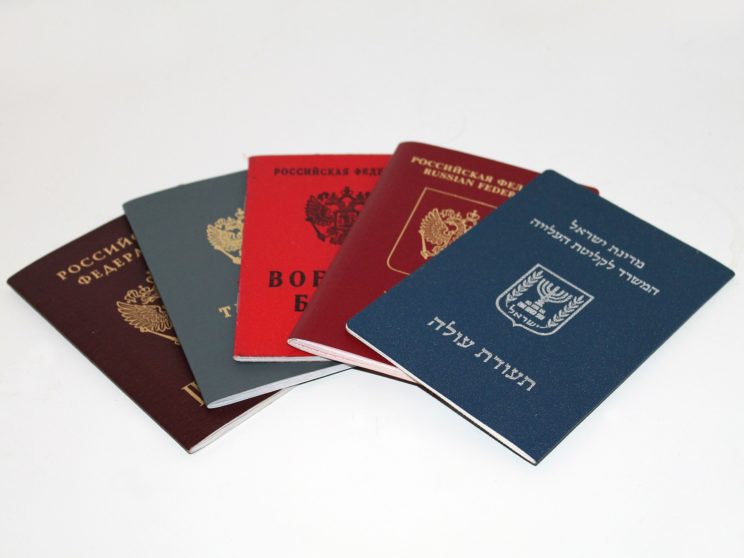Spouses of US Citizens and Legal Permanent Residents are Awarded Conditional Residence if Their Marriage is Less than Two Years Old
Pursuant to the Immigration and Nationality Act, the spouses of US citizens and legal permanent residents are granted conditional residence if at the time of obtaining permanent residence their marriage is less than two years old. INA § 216(a)(1) and (h). The same rule applies to people who enter into the US on K-1 Fiancé Visa and obtain their green card after marrying a US citizen. Id. § 216(h)(1).
The Conditional Resident and His Spouse Shall File a Joint Petition to Remove The Conditions on Residence
Within ninety days before the expiration of the two-year validity period of the conditional green card the conditional resident and his spouse must file a joint petition to remove the conditions on residence. However, in some cases the conditional resident and his spouse divorce before filing the joint petition to remove the conditions. Pursuant to the INA, the annulment or termination of a marriage before the removal of conditions on residence leads to the termination of the permanent resident status of the alien. Id. § 216(b)(1).
A Conditional Resident May Apply for a Waiver if His Marriage was Terminated before Filing the Joint Petition to Remove the Conditions on Residence
Although the termination of a marriage during the two-year conditional residency period is a basis for termination of conditional resident’s permanent resident status, the INA gives an opportunity to the conditional resident to file a petition to the United States Citizenship and Immigration Services requesting to waive the requirement of filing a joint petition to remove conditions.
There are Three Different Bases for the Waiver of the Requirement of Filing the Joint Petition to Remove Conditions
INA identifies three different grounds for the waiver of the requirement of filing the joint petition to remove conditions on residence:
(a) if extreme hardship would result in case the conditional resident is removed; or
(b) if the conditional resident and his spouse entered into the marriage in good faith, and the conditional resident is not at fault in failing to file the joint petition to remove the conditions on residence; or
(c) if the qualifying marriage was entered in good faith, during the marriage the alien spouse was battered by or was the subject of extreme cruelty perpetrated by her spouse and the alien was not at fault in failing to file the joint petition to remove the conditions on residence. Id. § 216(c)(4).
The grounds for waiver specified in INA § 216(c)(4) are separate and independent bases for waiving the requirement of filing the joint petition to remove the conditions on residence. Matter of Balsillie, 20 I. &. N. Dec. 486 (B.I.A. 1992). However, if the conditional resident qualifies for a waiver on different grounds he can include all the bases in his petition.
The conditional resident shall file the request for a waiver by using the Form I-751, Petition to Remove Conditions on Residence, which is also used for filing the joint petition to remove conditions. The most updated version of the form can be found on the USCIS website. The petition shall be filed with all the supporting documents showing that the conditional resident qualifies for the specific ground for waiver. If the petitioner is able to demonstrate that he meets the requirements for the waiver his petition will be approved and he will get the permanent green card.
Although your marriage was terminated during the conditional residency period you still can obtain your permanent green card if you qualify for a waiver of the requirement to file a joint petition to remove conditions on residence.
If you have questions regarding waivers of the requirement to file joint petition to remove conditions on residence or any other immigration law questions give us a call and receive a free consultation with one of our experienced Glendale immigration lawyers.
KAASS LAW is authorized to practice law in California. The above content is intended for California residents only. This content provides only general information which may or may not reflect current legal developments. KAASS LAW expressly disclaims all liability in respect to actions taken or not taken based on any of the contents of this website. The above content DOES NOT create an attorney-client relationship. KAASS LAW does not represent you unless you have expressly retained KAASS LAW in person at the KAASS LAW office.
KAASS LAW helps clients in: Los Angeles, Burbank, Hollywood, Glendale, Van Nuys, North Hollywood, Studio City, Highland Park, Eagle Rock, Sunland, Tujunga, Sylmar, San Bernardino, La Crescenta, La Canada, Beverly Hills, Westwood, Santa Monica, Brentwood. Pacoima, Montebello, Commerce, Alhambra, Downey, Bell, Maywood, Walnut Park, Vernon, Lynwood, Echo Park, Silverlake, Mission Hills, Northridge, Woodland Hills, Encino, Canoga Park, North Hills, Porter Ranch, Chatsworth, Reseda.

